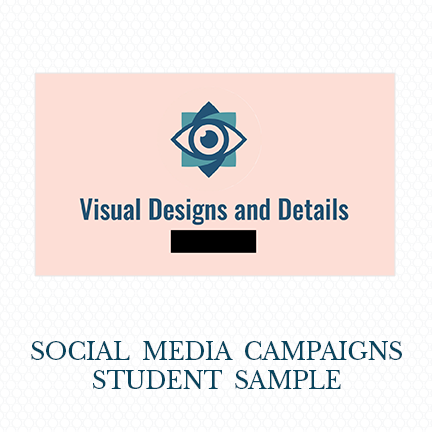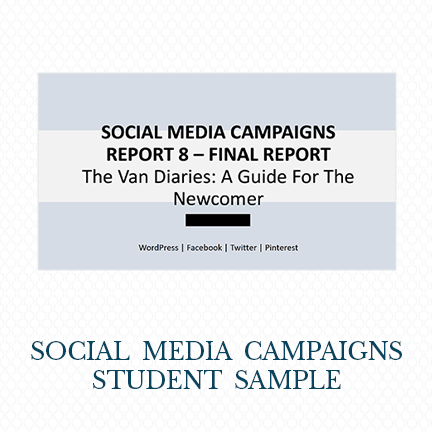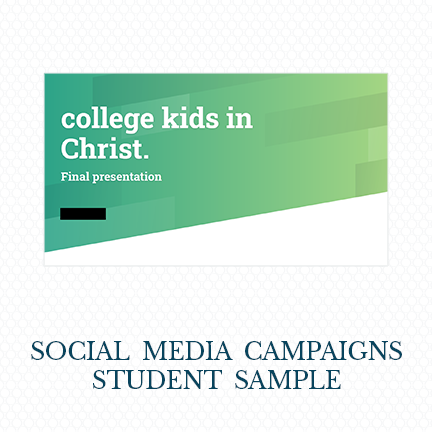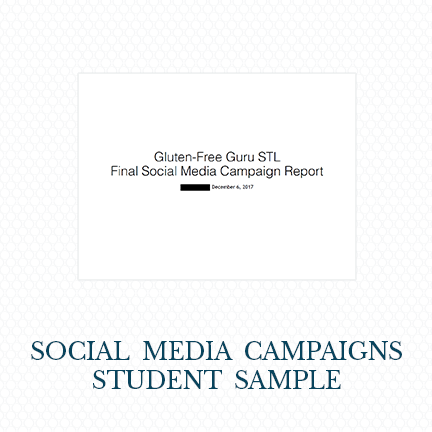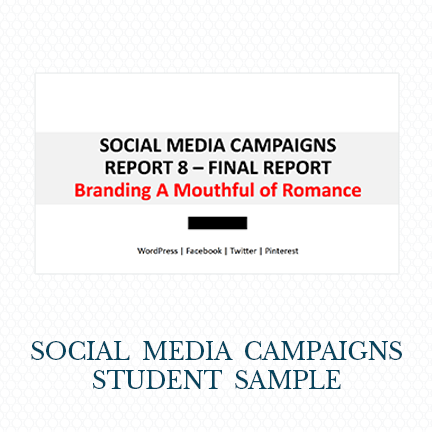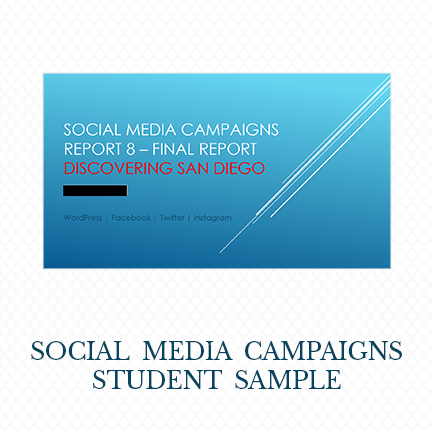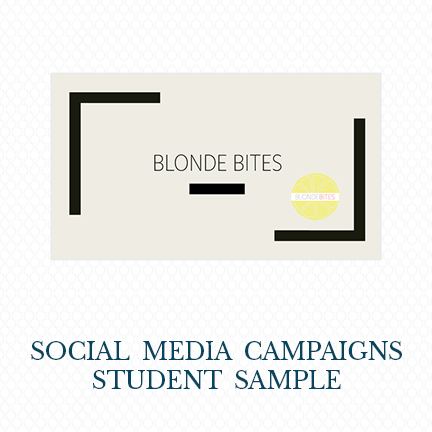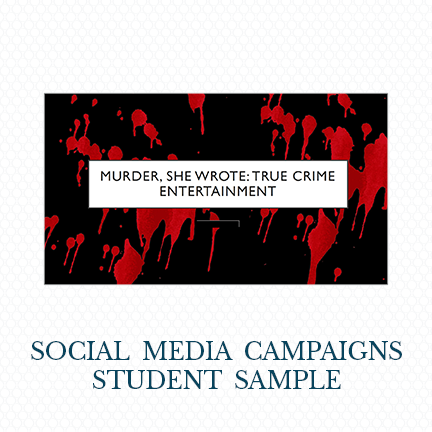Social Media Campaign Management
Topics: Social Media, Campaign Management, Public Relations, Communication
Audience: College Students
Goal: To convert a 16-week synchronous course to an 8-week asynchronous course. As a member of the instructional design team, I served as the subject matter expert, providing the curriculum design and module content.
Reflection: The addition of recorded videos, pre-created assignment templates, and an adjustment of the course load successfully converted the course from an on-ground to an online course.
“This course is challenging but it was probably the best way to understand what it takes to run a social media campaign.”
“I enjoy exploring the different social media platforms and being able to work with a campaign subject that I enjoy.”
“The reading material and project outline is clear and serves as a guidance of what to complete each week. The class is a great elective that I’m enjoying very much.”
“This class gave me a reason to put an idea I’d been toying with into practice so I’m happy about that I find this class very interesting and interactive.”
Description
New and social media are transforming communication for individuals, organizations, and society. This class explores what is unique about the emerging media landscape and why we should care about these changes. This course focuses on how language, discourses, and meaning have been and continue to be created and altered within the interdisciplinary area of social media. Starting with the social implications of new media, this course will delve into how the new media landscape influences public relations, advertising, marketing, and journalism. Students will become familiar with many current social media tools during the class. They will also learn to think critically about how individuals and organizations talk about and create meaning within the new and social media world.
Social media is transforming communication for individuals, organizations, and society. This course focuses on how language, discourses, and meaning have been and continue to be created and altered within the interdisciplinary area of social media. There will be a particular focus on the language of policies about technology, the media’s construction of the social media landscape, the economics of social media, and the discourses of privacy. Students will become familiar with many current social media tools during the class and learn to think critically about how individuals and organizations talk about and create meanings within the world of social media.
Objectives
This class is designed to introduce how social media constructs, reflects, and impacts our reality, focusing on the impact of communication practices within organizations and in everyday life. At the end of this class, students should be able to:
- Understand the opportunities and challenges inherent in online communities.
- Identify and apply the best practices and techniques used to design thriving web-based communities.
- Assess and interact with select technologies used to create, manage, and maintain online communities and
- Design and implement a social media campaign community.
- Demonstrate an understanding of several social media tools and how they could be used in a public relations context.
- Understand the role of social media in today’s communication climate.
- Present an innovative example of a social media tool that would be useful for the future.
- Explain both sides of contemporary social media debates and emerging technology’s impacts.
Instructional Methods
Social Media Campaign: Because you will learn best by “doing” this semester, you will utilize your skills through the implementation of a comprehensive, integrated internet campaign. You will create and implement a social media campaign to support the topic of your choice utilizing WordPress, Facebook, Twitter, and Pinterest. While design and creativity are important, it is vital that your campaign be consistent and effectively integrate the tools to create connections, develop a following, and deliver your message. You must take into consideration what kind of content will need to be developed or utilized to make the project a success.
Campaign Required Elements:
- Status reports throughout the campaign
- Editorial calendar and strategy
- A fully functional, customized interactive website/blog with at least 12 original posts,
- A Facebook fan page with at least 30 page likes and 50 posts. Join at least five groups
- A Twitter account with at least 50 tweets, following at least 300 accounts
- A Pinterest account with at least 3 boards and 75 pins. Follow at least 20 Pinterest boards or pinners
Other Instructional Methods
- Social Media Policy
- How might human-focused, positive guidelines for social media use set a course for conversation? You have been hired as an HR Specialist, and you must draft a social media policy for company employees. You will design clearly articulated guidelines for using social media within an information environment of your choice. The document should be no more than three pages, include citations, and be error-free. See Canvas for additional information.
- Resource of the Day Presentations
- Each student will present TWO “resource of the day” critiques (presentation and worksheet). Presentations will walk the class through the tool and should not be longer than 5 minutes. In many cases, you will need to set up some kind of account—use your big project Gmail.


